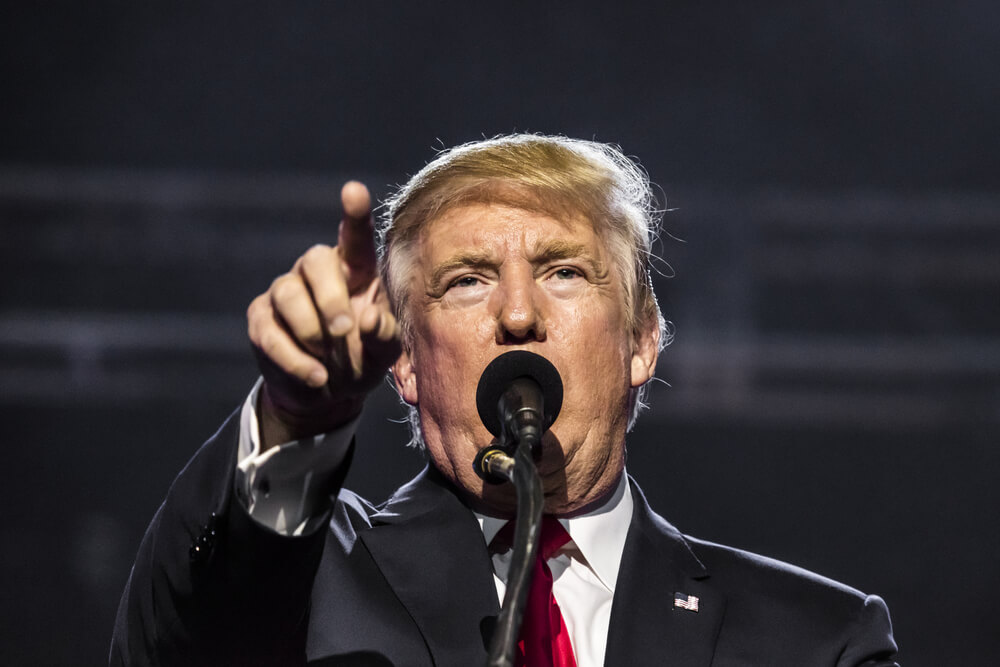It’s been quite a week for Ukraine and Russia, and not in the way that either Democrats or their fellow travelers in the U.S. deep state are happy about in the least.
While the brazen and thoroughly corrupt House of Representatives was congratulating themselves over a party line vote on weak and, frankly, unconstitutional Articles of Impeachment against President Donald Trump, two far bigger issues that have plagued international politics for years came to an uncomfortable conclusion.
The first was the admission of impotence by the Trump administration that freshly minted sanctions against Russia will not derail completion of the Nordstream 2 pipeline from St. Petersburg to Germany.
After thousands of man-hours and millions of dollars were spent trying to stop Nordstream 2, the final result was Russia and its gas giant, Gazprom (NYSE: OGZPY), running out the clock with the help of its European partners.
I never doubted that Nordstream 2 would get completed. It will bring its 55 bcm of natural gas annually to Germany for the foreseeable future.
The economics of it for Europe are simply too good. Moreover, it makes perfect political sense as it further ties Europe and Russia together in an economic union that is now much harder to break.
Pipelines are like seams in a garment, they tie the whole thing together. So now that Nordstream 2 is fait accompli, the next project for idle U.S. cold warriors like Senator Ted Cruz (R-Gasland) will be Gazprom’s Turkstream pipeline. One train of Turkstream is complete. It will be christened by Russian and Turkish Presidents Vladimir Putin and Recep Erdogan just after New Year’s.
The follow up trains, potentially three more, will become the next battleground as countries like Serbia, Hungary, the Czech Republic and others all want gas from Russia from this pipeline. Trump is likely to sign the sanctions bill from Cruz because it’s attached to the annual NDAA — National Defense Authorization Act.
But Nordstream 2, as important as it is, is secondary to the biggest news concerning Ukraine. After laying the groundwork at the Normandy Four Meeting in Paris on Dec. 9, Russia and Ukraine came to a conclusion on a new gas transit contract, ending years of strife on this issue.
Russian Energy Minister Alexander Novak spoke after a meeting in Berlin, brokered by Germany, that a draft agreement between Gazprom and Ukrainian state gas company Naftogaz has been signed and the full agreement will be finalized soon.
This is a bombshell of an announcement.
After the meeting in Paris, it didn’t look good for a deal as Ukrainian President Volodymyr Zelensky looked completely out of his depth and trapped between his need to make a deal for Ukraine, and the very real external political pressure being applied to him by the U.S. and extreme nationalist forces opposed to his agenda to repair relations with Russia.
This gas contract was one of German Chancellor Angela Merkel’s big stipulations for ending some of the European Union’s sanctions against Russia. Another, of course, was implementation of the Minsk II agreement on ending the conflict against the breakaway republics of Donetsk and Luhansk.
Putin announced Russia’s offer to discount gas to Ukraine at a steep 25%, but the stumbling blocks to a deal have been the awards in European courts against Gazprom for more than $12 billion in favor of Ukraine.
This is nothing more than bailout money imposed through hyper-politicized courts to get Russia to pay for U.S. and EU meddling in Ukrainian politics, which resulted in the ouster of former President Viktor Yanukovich. Think of it as geopolitical blackmail.
Russia and Gazprom were having none of it, since they had all the leverage in negotiations over this gas deal. Germany needs a way out of this conflict to save face, Ukraine needs not only the gas itself to rebuild its shattered economy but also the transit fees to stabilize a government barely worthy of the name.
Russia wanted a deal to shore up a vital neighbor, stabilize its border and thaw relations with Europe.
All of this is very positive for Gazprom as well as Russian equities in general.
It removes a number of big political storm clouds from Gazprom’s immediate future while implying a renaissance of Russian/European trade curtailed thanks to sanctions. The most important ones will get lifted in 2020 and that will send an already strong Russian equity market higher still.
All roads seem to lead through there when you look the headlines this week. And nothing is more telling of that than the ridiculous impeachment vote against President Trump. Ukraine was the epicenter of nearly every major political story over the last five years from the initial Maidan uprisings to Crimea, RussiaGate, gas supply corruption, and the Kerch Strait provocation.
U.S. and British deep state actors worked overtime to poison relations between Ukraine and Russia, and tie President Trump’s hands, keeping him from resolving anything. It was only the election of Zelensky that broke open the deadlock, and even then, it took six months to get any concrete evidence he would be able to effect any positive change.
It’s clear to me that House Speaker Nancy Pelosi, D-Calif., is acting in bad faith with this impeachment by trying to usurp power the House of Representatives does not have. She’s doing this to sweep under the rug the gross corruption of the Obama administration for its actions in Ukraine now that Zelensky is in charge.
And this impeachment may not even occur in the end if she doesn’t pass them along to the Senate.
Once this impeachment fiasco is in the rear view, Trump will unleash hell on Pelosi and the Democrats. His mostly hands-off approach to the big problems set up by his former National Security teams under McMaster and Bolton in Ukraine gave the European leaders all the breathing room they needed to get these deals done.
The issue at the heart of the impeachment, his slow-rolling military aid to Ukraine, is a symbol of the changes coming to the region. Trump will slowly pull our support of Zelensky’s government and leave Ukraine to its own devices. It’s a lost cause there, just like in Afghanistan and Syria.
His pulling the U.S. out of these conflict zones only makes the case for investment into Eastern Europe and Russia that much stronger. The Euro-zone is a different story. As we put 2019 to bed the game board in Europe is in flux. Russia is ascendant, having run out the clock leaving Washington, Berlin and Brussels in disarray.
• Money & Markets contributor Tom Luongo is the publisher of the Gold Goats ‘n Guns Newsletter. His work also is published at Strategic Culture Foundation, LewRockwell.com, Zerohedge and Russia Insider. A Libertarian adherent to Austrian economics, he applies those lessons to geopolitics, gold and central bank policy.




